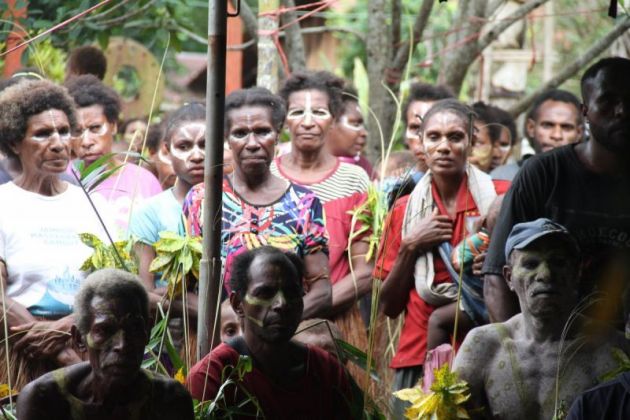Churches in West Papua call for end to operations by Indonesian military

For the people of the Indonesian province of West Papua, human rights have significantly deteriorated throughout 2019 and 2020, the latest biennial report issued by the International Coalition for Papua says.
Due to deterioration, the West Papuan Council of Churches issued a moral call to the international community on behalf of their people of their region where the majority of people are Christians in the world's biggest Muslim nation.
"The people living in darkness have seen a great light; on those living in the land of the shadow of death, a light has dawned," said the council in an 8 December statement quoting Matthew's gospel (4:16), the World Council of Churches reports.
Among the signatories of the statement was Rev. Benny Giay, moderator of the council, which spoke of a rising death toll due to conflict in the province. They called on the support of the international community.
"Military operations in Papua must stop," said the church leaders.
"In line with President Joko Widodo's promise to the chair of the UN Human Rights Council in February 2018 in Jakarta, we call for the UN Human Rights Council to come to Papua to conduct independent investigations into the protracted conflict in Papua," the council said.
The 1.1 million West Papuan people, made up of ethnic minorities in Indonesia of whom more than 60 percent are Christians, were highlighted in interventions at the World Council of Churches hybrid meeting on racism and xenophobia this week, hosted at the WCC in Geneva.
"The other party feels superior, feels self-righteous, relies on their power to suppress, terrorize, and carry out political racism against Papuans," said the West Papuan Council of Churches in its call for the people.
Papua is one of the least prosperous provinces of Indonesia, the world's largest Muslim nation with some 273 million people.
The churches said in their statement that the people of West Papua are criticized, accused of being "infidels, separatists, traitors, and terrorists," in the world's biggest Islamic nation "as if we are not human beings created by God's hand in His image."
'LIGHT OF OUR FAITH'
The churches' council noted that in the conflict between the Indonesian National Army and Police and the West Papua National Liberation Army was ongoing, prompting their moral call.
The council said that the conflict has resulted in a humanitarian crisis in six regions of the province -- Yahukimo Regency, Kiwirok District, Star Mountains Regency, Intan Jaya Regency, Maybrat-Sorong Regency, Nduga Regency and Puncak Papua Regency.
"We have received reports from the congregations we pastor that at least 60,000 Papuan people from our congregations have currently evacuated to the surrounding districts, including some who have crossed into PNG (Papua New Guinea)," said the West Papuan Council of Churches.
They also called for the release of eight detained Papuan students who they said "were only expressing their democratic freedoms by raising the Morning Star Flag on December 1, 2021, in the courtyard of the Cenderawasih Sports Building."
MILITARY OPERATIONS
The church leaders said that Indonesian President Joko Widodo's government, under its military law, is obliged to convey information regarding the status of Papua, clarifying whether it is an area of Military Operations, whether it is under "Law Enforcement" or comes under Welfare Development.
The churches' council charged that government authorities plan the division of Papua Province and several urban regencies in Papua.
"They are doing this in an uncivilized manner, unconstitutionally, and for political purposes, without listening to the voice of the people, especially the voice of the Provincial Government and the Papuan People's Assembly," said the churches' message.
The churches said the Indonesian government is pushing such an agenda to "accelerate the extermination of Melanesian people in Papua and as a means to accelerate the exploitation of natural resources in Papua."
The churches' council said that the democratic space for freedom of expression in Papua continues to be silenced by the government.
"The government has still not opened access for the UN Human Rights Council, international journalists, senators and congress members, or academics to visit Papua," said the council.
"Papua has become a region of exception in Indonesia which is being intentionally isolated by the Indonesian government."